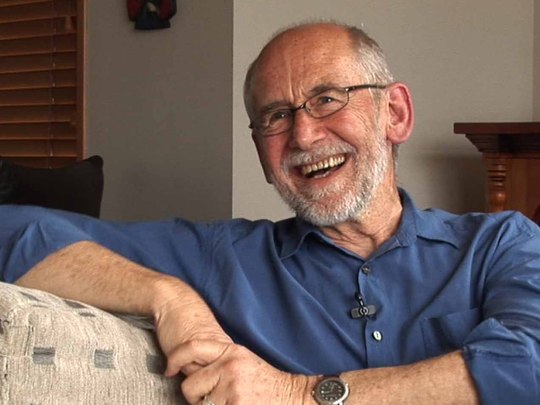
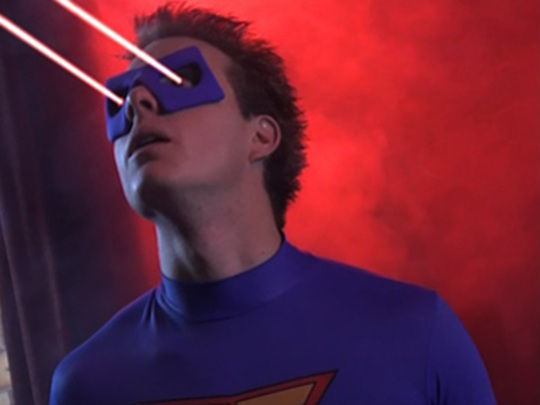
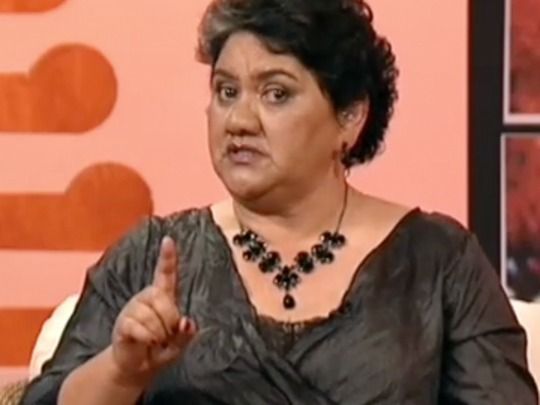
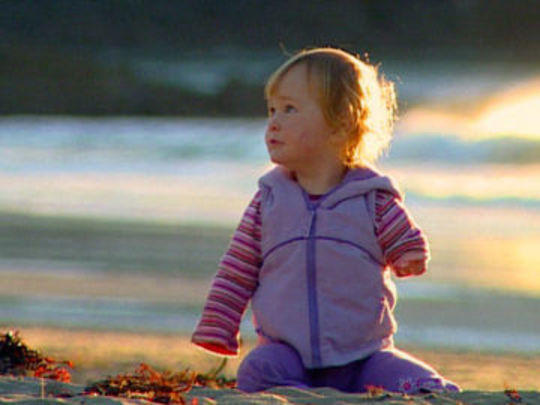
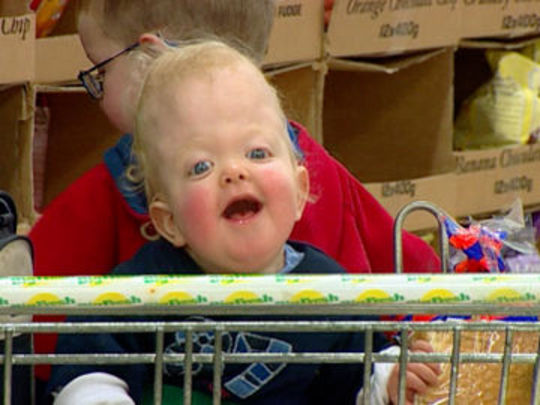
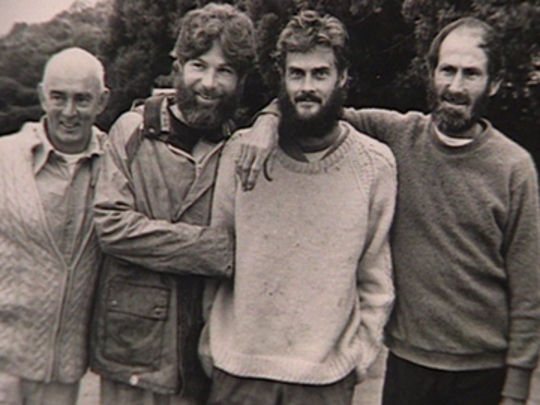
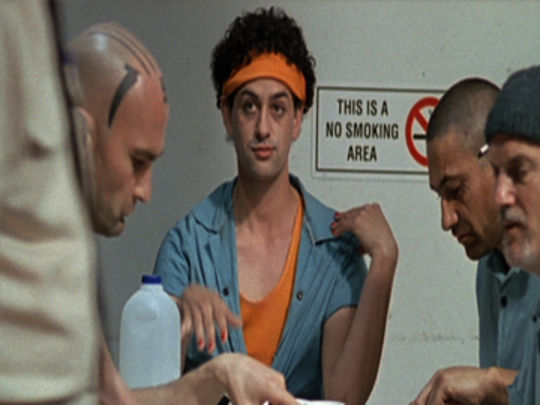
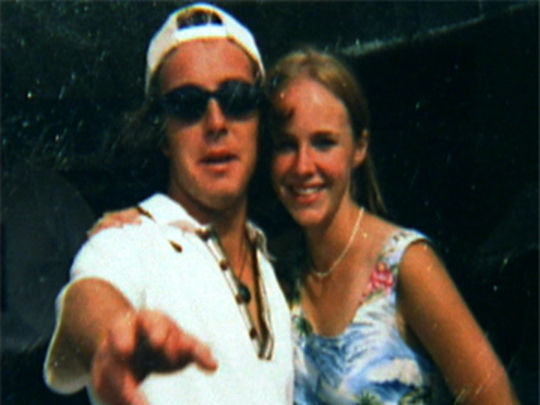

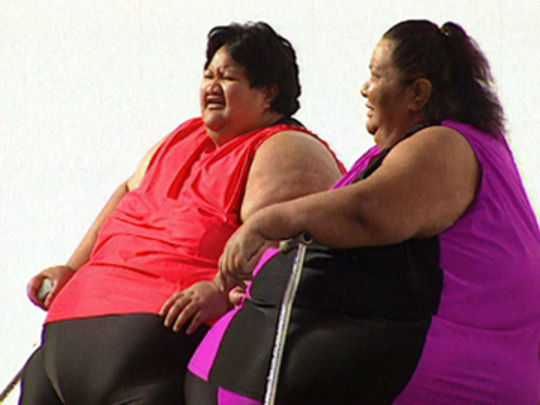
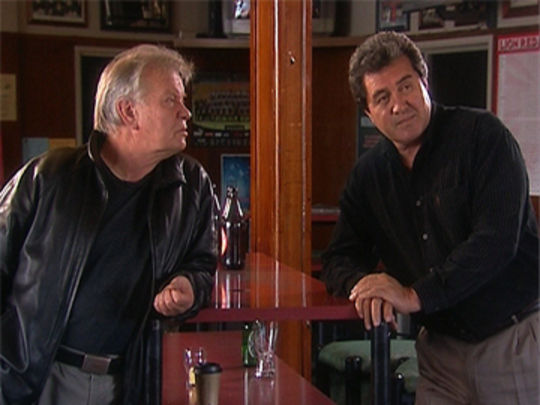

Greenstone TV Turns 30
Greenstone TV Turns 30
This collection has two backgrounds:
The Good Old Days

Turning 30

The Good Old Days
By John Harris 26 Sep 2024
There never was a Grand Plan. But after years as a reporter (The Auckland Star, TVNZ), and producer/director (Top Half, That's Fairly Interesting, Heroes), I decided it was time to 'do my own thing'. In 1994, I said goodbye to Neil Roberts and Robin Scholes at Communicado (both of whom taught me a lot), and set out on my own.
Greenstone Pictures was the name I chose for my new company — the word ‘greenstone’ spoke of quality and essential Kiwiness. I prepared a crazily detailed and conservative budget (right down to the rubbish bin), and working from home, began feverishly pumping out proposals for TV shows. Fortunately, some of them hit the mark (Against the Odds, Godzone Sheep, The Mighty Moa) and suddenly I was in business.
I still remember sitting in my car outside a photocopying shop where I'd just run off a few proposals, and receiving a call from Geoff Steven at TV3 telling me they'd commissioned my first series, Against the Odds (although it was an excellent series, it got slaughtered in the ratings by a new sitcom called Friends).
Greenstone began to tell stories that I believe added to New Zealanders’ understanding of themselves and pride in themselves. Their history. Their character.
The company’s first home was a small office space in Mt Eden, which we shared with documentary-maker Shirley Horrocks. We started producing a wide range of documentaries like The Business of Burglary, Baby Charlotte, Private Lives of Little People, BIG, Crump: A Wandering Star, Hudson and Halls: a Love Story, Kirsa: a Mother’s Story, Secrets of the Car Thieves,My Kāinga My Castle with Sir Howard Morrison, When Women Kill and Who’s Killing the Kiwi?
Although these one hour documentaries won awards and were very satisfying to make, they were time-consuming and only marginally profitable. We had to focus on ongoing series if Greenstone was to flourish. Some of the early ones — like The Zoo, and Motorway Patrol — were a great success. They rated well in New Zealand, and sold to Australia and a dozen other countries. Their longevity made it easier to plan ahead, and confidently hire people.
The Zoo and Motorway Patrol were among New Zealand’s first ongoing observational documentary series. First Hand had offered a range of one-off documentaries in the early 1990s, and Ninox show Hospital (1997) captured the goings on at Wellington Hospital. Almost overnight, it seemed, the 'obs doc' concept — offering viewers “privileged access” — became popular. One of Greenstone’s most successful was The Zoo, which showed life on both sides of the bars. The series established a long-running formula, giving viewers access to animals and keepers. It gained a sizeable and faithful audience, screened for some 15 years, and sold to a dozen countries. In many ways these 'obs docs' are just as valid as one-hour documentaries, in that they show us real Kiwis in the raw.
At the start Greenstone was very much a family affair — my family helped me set up and paint my first office, and two of my daughters worked for me for quite a while. When we needed actors for reenactments on historical show Epitaph, family members sometimes ended up ‘dying’ in terrible ways. I remember watching the rushes and seeing my dear little grandchildren being ‘murdered’ in their beds, and my brother Peter being wrapped up in a carpet before being ‘buried’.

Epitaph — which was Paul Gittins' idea — remains one of my favourite programmes. It not only allowed us to dabble in drama, but it brought to light many untold stories from New Zealand's past. Many of these stories were about early settlers struggling to make a go of it in a new country, and meeting a tragic end. Then in Taonga, we focused on important Māori stories.
Stephen J Campbell created kidult series Secret Agent Men and The Amazing Extraordinary Friends (and later The Cul de Sac). They were enormous fun, and expanded our creative horizons.
Our expertise in observational series grew. It seemed that our cameras were everywhere — in the air, on the highways, on the water, in hospitals and auction rooms: Motorway Patrol, Kids Hospital, Going Going Gone, Serious Crash Unit, Emergency.
We struck gold in the suburbs with Bill Kerton and Neighbours at War. We tackled serious and dramatic stories with To Hell and Back - Tanjas’ Story, Cave Creek - The Full Story of a National Tragedy, and Back from the Dead - The Saga of the Rose-Noëlle. We made some very popular format shows like Guess Who’s Coming to Dinner with Suzanne Paul, delightful studio shows Like Ask your Auntie, In beTween and How’s Life, and arts series like Mercury Lane.
Early on, I began attending the television markets in Cannes, which exposed Greenstone to the international business. With help from our Australian distributors, Beyond International, our shows sold well in numerous countries. The revenue helped us sustain our local business. Especially popular were shows like The Zoo, Motorway Patrol, Epitaph and Neighbours at War — partly because they showed off the beauty of New Zealand's landscapes and the "quaintness" of its people (Aussies sometimes marveled at how "soft" and friendly our cops were). An important factor for content-hungry channels was that we could provide dozens of episodes of some shows, which they could "strip" across their schedules.
Achieving international sales required a serious commitment — regular trips to Australia, and annual trips to the MIPTV and MIPCOM television markets in Cannes, followed by visits to England and other territories. We made our own connections, but having an active distributor was vital. Greenstone's general manager Bryan Hall proved an energetic and effective salesman.
Our relationship with Australian channels Seven and Nine grew stronger. They bought our New Zealand-filmed shows, and later commissioned us to film police shows like Highway Patrol and Crash Investigation Unit in Australia, adapting formats that had worked in New Zealand.
Years later, we bought company Cream Media from Nigel Snowden, and added to our portfolio popular shows like Coastwatch, Dog Squad and Border Patrol.
One of my biggest practical challenges was managing growth — keeping the team busy as shows ebbed and flowed, managing fluctuations in office space, and spreading our income across the year so we weren't faced with a sudden financial crisis. Creatively, the challenge was to keep coming up with fresh ideas for shows, and abreast of changing viewer tastes. Early on, I committed to having a dedicated development person, and continued to allocate money to R and D, even — especially — when the going got tough.
I was, let's face it, a complete novice in the world of business. But I stuck to a basic rule of thumb: making sure I had more money coming in than going out. The second rule was to hire the best people I could find, and this served me well. Our first full-time producer was Tony Manson, and we were incredibly fortunate to have Glenda Paterson join us as financial controller. They both stuck with Greenstone for years, making sure we produced quality programmes, and keeping me out of debtors’ prison.
I hired people who were not only smarter than me, but incredibly loyal. Glenda, Tony and later Andrea Lamb as head of production; lawyer Mick Sinclair, who kept us out of court; Robyn Galgey who did just about everything else…plus presenters and ideas people like Paul Gittins and Leigh Hart…writers like Colin Hogg…and countless production managers, researchers, development people, assistants, directors, producers, editors, camera teams…
I didn’t realise it at the time, but the 1990s were "the good old days" of television. It was a relatively straightforward process to come up with an idea, get a broadcaster to support it, and approach NZ on Air for funding. Often our documentaries would screen in primetime, would you believe it, and win huge ratings. What a contrast to the tough business it is today!
Greenstone represents a wonderful period of my life — close on 20 years of making memorable TV programmes with friendly and creative people. Worries, yes – but a lot of friendship, a lot of laughter, a lot of success, and a lot of pride in our work. Looking back, the thing I’m most proud of is the culture that I set up. Greenstone was and is a good place to work. And that was down to employing the right people.
What I tried to do was come up with the occasional good idea for a programme, and provide a supportive environment for everyone to work in. I failed sometimes — and for this I apologise — but obviously I made enough good decisions for us to grow like topsy for a couple of decades, until I handed over to the team that runs Greenstone now.
I disappointed a few people along the way, and still have nightmares about mistakes made. I regularly got bogged down in detail, tried to take on too much myself, and took my eye off the big picture. We lost one or two talented people because I didn't find a way to provide challenges for them. None-the-less, my intention always was to make Greenstone a place where people would enjoy working, and people would enjoy dealing with us. This was part of the ‘manifesto’ The Greenstone Way, which I wrote and insisted everyone observe. It sounds pompous, but this was a declaration of our intention to operate honestly and fairly. We tried to be transparent, and always paid our small contractors before the big ones.
I miss the people I worked with, and the excitement of coming up with new ideas, and some of the cut and thrust of the television business. But I am glad to be out of it now. It’s a much more difficult business than when I started; so it’s an incredible buzz to see Greenstone thriving.
- John Harris began his television career in news and current affairs. He continues to develop screen projects.
Turning 30
By Rachel Antony 26 Sep 2024
At a party in February 2024 to celebrate Greenstone’s 30th birthday, dozens of people made a beeline to tell me how much their involvement with the company means to them — whether as crew, presenters, researchers or directors. They regaled me – Greenstone’s current Chief Executive — about stories they'd felt privileged to tell; how they carried an experience into their next career step; the friends they'd made; favourite memories from unusual location shoots; a freelance contract arriving at a much-needed time; being part of an iconic, beloved local series.
There aren’t many screen businesses in Aotearoa that have made it to 30, so a part of Greenstone’s impact is purely a result of longevity. But it is much more than that. And I understand it — Greenstone has given me so much personally and professionally too.
A production company is, of course, mostly the sum of its people — those willing to share their stories, and those who choose to be professional storytellers. For Greenstone, that began with John Harris — a journalist who saw an opportunity to put more “everyday New Zealanders” on screen when he founded the company, and began the country’s love affair with observational documentaries. The Zoo, which ran for a dozen years and 191 episodes, gathered audience numbers we can only dream of these days. It was also one of New Zealand’s first screen export successes, selling into over 100 countries.
Along with John, producer Nigel Snowden also quickly understood that real life characters and human interactions are endlessly fascinating to audiences. He delivered that in spades, starting with Motorway Patrol, a show now entering its 23rd season.
Greenstone has produced over 2500 hours of original New Zealand content, from kids’ shows like K-Pop Academy and Young Riders, to premium documentary series likes Artefact and Decades In Colour. Many of our unscripted shows are among New Zealand's most enduring audience favourites. Highway Cops is still going strong in its 12th year, and Neighbours at War remains a cult classic.
So, what is a “Greenstone show”? Our team refer to it as "smuggling documentary into primetime" — a bit like melting cheese on your veggies. In some audience research we undertook a few years back, a key finding was that while entertainment will always be paramount, audiences also feel good about themselves when they learn something; we aim to deliver both. And we will never stop appreciating what a privilege it is to take a camera into a hospital room, to be invited into a wharenui, or to sit in someone’s living room as they share what is often a huge moment in their life.
“I was in a tourist shop in Namibia, about to buy a wooden trinket. The cashier heard my accent, looked at my desired purchase and said ‘Kiwi? Seriously man, you can’t take this to New Zealand; don’t you watch Border Patrol?’”
-ex Greenstone Managing Director Richard Driver
While Greenstone has diversified strongly into scripted content in the last decade, our wealth of experience in often complex “access docs” remains unique in Aotearoa, and globally recognised. We tell acclaimed stories of Kiwi scientists, cops, kaumātua, entrepreneurs, students and skydivers, and have unique access to the work of multiple government agencies. Greenstone’s most successful series, Border Patrol, was originated by Nigel Snowden as his first commission when he set up Cream TV. Greenstone acquired Cream in 2010, and some of that team — including senior producer Jani Alexander (who began her career as Nigel’s PA) — are still with Greenstone today.
Our focus is three-fold:
- To discover diverse, authentic, local stories, so New Zealanders can see themselves on screen
- To work with and develop the talent of the country's best audiovisual storytellers
- To take those stories to a wider world
The cultural value of our business and foundations of IP creation are in Aotearoa; our sustainability is in making that IP work internationally. Unlike most larger New Zealand production companies, we don’t service other people’s formats; every Greenstone show is original New Zealand content. It’s of and for this place, first and foremost – and when a show works globally as well, that’s brilliant. Increasingly, it’s that international success that’s supporting local production and development.
As well as selling Kiwi content to the world, Greenstone has worked globally — filming projects in locations from Antarctica to Abu Dhabi. Since 2008, we've also worked out of Australia, producing series for Channel Seven, starting with Crash Investigation Unit and then Highway Patrol. The Australian connection was strengthened in 2014 when CJZ — producers of Bondi Rescue — acquired Greenstone when John Harris retired.
Greenstone continues to benefit from the strong foundations of long-running shows. It is, unfortunately, hard to imagine a company launching today emulating that path to success, because the media environment just doesn’t exist to enable that. New Zealand should be aspiring for many more Greenstones, and for far more Aotearoa-created content to reach audiences here; for more careers to flourish here; and for more of those lightweight, highly productive digital exports to go gangbusters globally. But many government policy settings would need to change to enable that — currently they allow the playing field to tilt towards ad-revenue hoovering multi-nationals Meta, Google, and global streamers who have no commitment to local storytelling.
Around 2016, Greenstone took the decision to invest heavily in diversification into scripted content, with the appointment of Harriet Crampton as Head of Drama. Throughout the early 2000s, Greenstone had collaborated closely with creator/writer/producer Stephen J Campbell on live-action children’s content, aimed squarely at underserved tween audiences. That began in 2002 with Secret Agent Men (three seasons), followed by superhero comedy Amazing Extraordinary Friends and award-winner The Cul de Sac, which ran from 2015 to 2018. Greenstone’s first primetime scripted project from Harriet’s slate leant into our documentary roots: The Tender Trap starred Rima Te Wiata as the real-life victim of a romance scam — it won Best Script at the NZ TV Awards. Vegas followed, then multiple seasons of My Life Is Murder with Lucy Lawless, and comedy Kid Sister.

My Life Is Murder: actors Ebony Vagulans and Lucy Lawless
For most of the last decade, Greenstone has been led by Kylie Croft (Head of Production); Tash Christie (Head of Unscripted); Harriet Crampton (Head of Scripted); and Tara Pradhan (Head of Government and International Relations). Our wonderful Head of Finance, Sarah Haydock, passed away far too young from cancer in 2023 — a huge loss for Greenstone and the industry. Barbara Murphy now leads the Finance team. I am grateful for the smarts, humour, talent and commitment everyone at Greenstone brings to their mahi — and am especially grateful to be surrounded by a leadership team of these clever, kind, kick-ass women. As well as their daily contributions to all their teams and projects, they put effort and attention into supporting and championing the wider sector.
It’s 26 years since I first worked for Greenstone — as a freelance researcher on Garage Sale, starring the inimitable Suzanne Paul. And it’s been seven years leading this remarkable company. I ran into John Harris a while back, and he commented that "it does seem a lot more complicated these days". Indeed it is. I do hark back to the opportunities that the NZ On Air funding of some two-dozen one-off documentaries a year once offered — for so many who built careers on the Documentary NZ and Inside New Zealand slots. And I miss what a mass audience can achieve for a national conversation that a fragmented, siloed audience can’t.
But I’m not nostalgic for a time of few channels, narrow voices and linear schedule limitations. I’m also not nostalgic for a time when female CEOs were a rarity, nor for a time when my non-Pākehā friends and colleagues had little chance of telling the stories they wished to tell. What I do hope is that, regardless of the inevitable next shift in the media landscape, companies like Greenstone can continue to provide opportunities for screen storytellers to learn and grow — and for New Zealanders to see and hear themselves.
It’s a rapidly changing world, but the power of screen content to create a conversation lies at the heart of everything we make. On the walls of the Greenstone whare are hundreds of framed production photos, all accompanied with a list of the tīma who created that project. I like to think of them as a sort of tukutuku panel — a celebration of all the storytellers who’ve come before us, and a reminder of the many, many people who’ve chosen to collaborate with us, on screen and behind the camera.
Kia whakatōmuri te haere whakamua.
- Journalism graduate turned TV producer Rachel Antony opened Greenstone's Sydney office in 2007. After time as a development executive, she became Greenstone's Chief Executive in early 2017.




